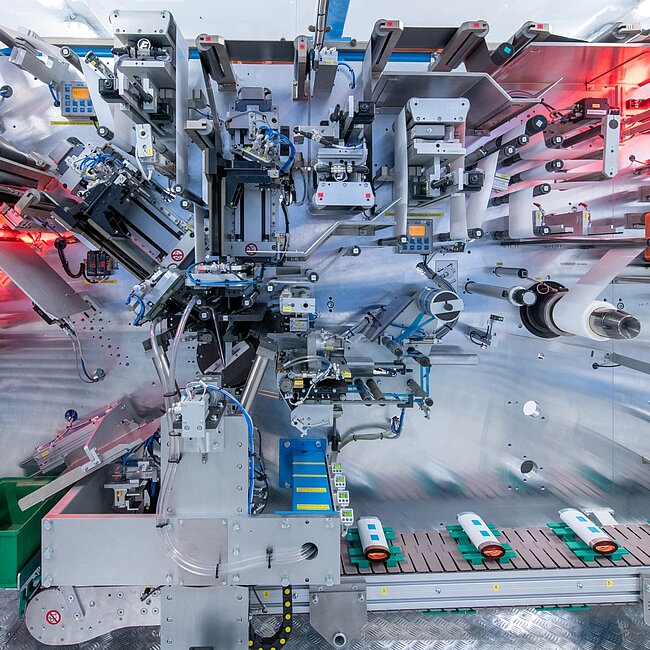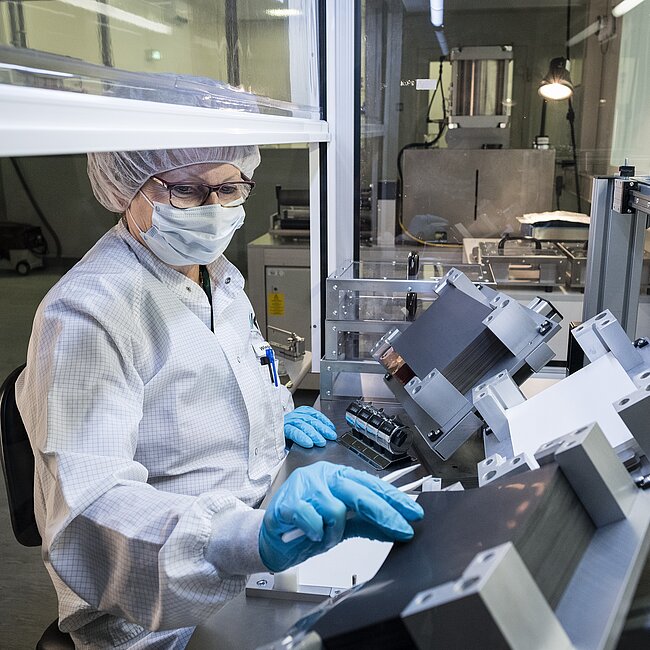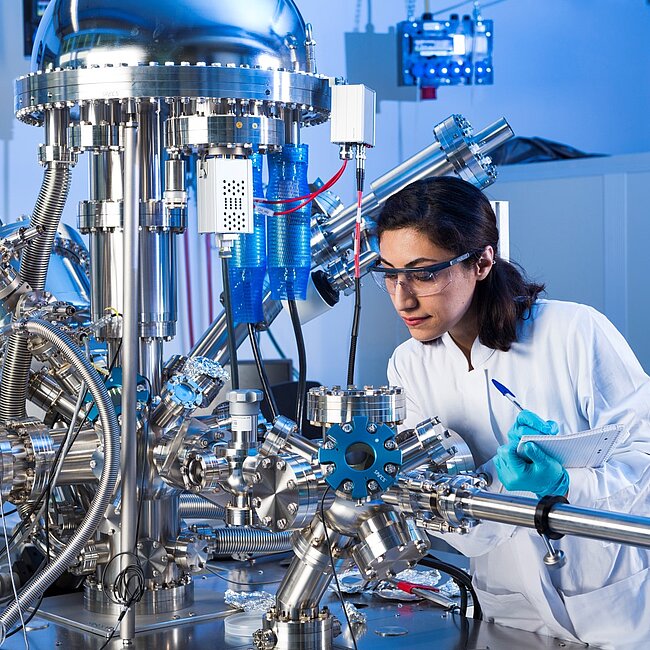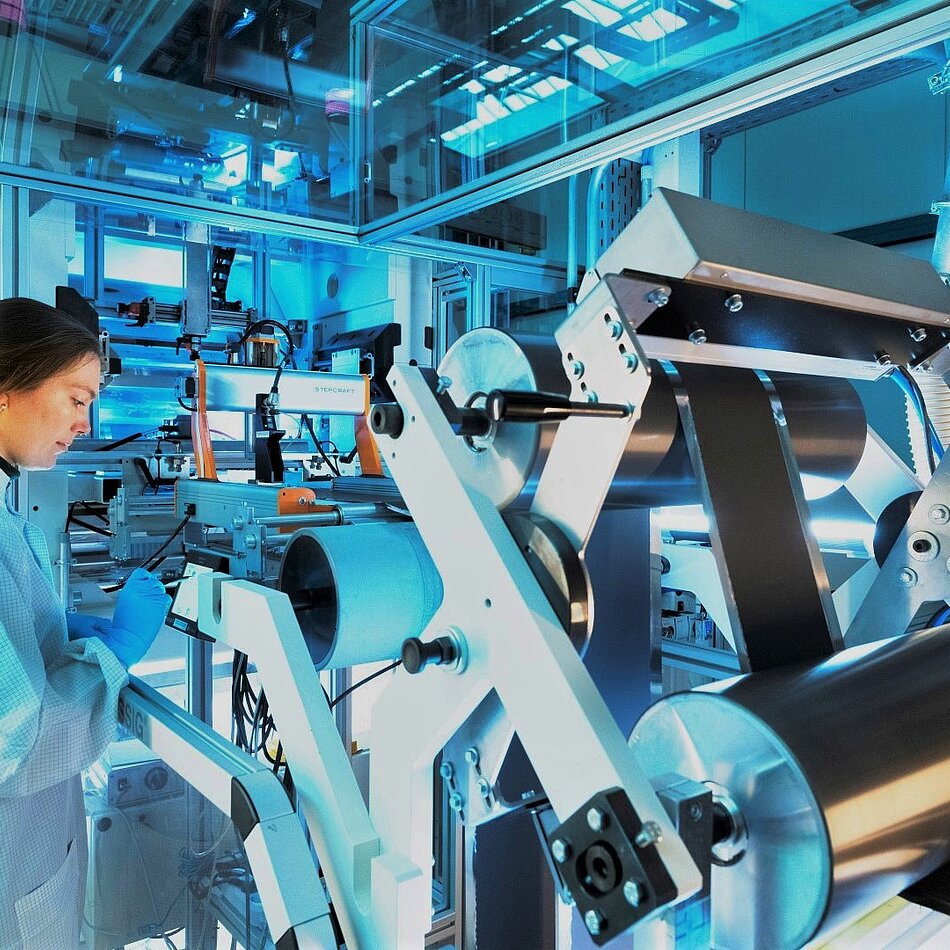About POLiS

Batteries are one of the key technologies of the next decades. Lithium-ion batteries have not only enabled the consumer electronics revolution, they are also about to enable electric-driven transportation and will substantially contribute to the energy transition (“Energiewende”), providing intermediate storage of electric energy for efficient use of intermittent renewables such as solar or wind in decentralized facilities.
Lithium-ion batteries are currently the best battery option as they offer high voltages and thus high energy densities. However, the battery chemicals used are not sustainable in the medium and long term. The extraction of components such as cobalt, graphite and lithium involves political, ecological and economic risks. The European Commission fears supply bottlenecks due to scarcity of resources and the uncertain political situation of some countries with large reserves.
The Cluster of Excellence POLiS develops the necessary new battery materials and technology concepts for efficient and sustainable storage of electrical energy. We have identified sustainable alternatives that no longer rely on lithium and other critical materials: We are researching batteries based on sodium, magnesium, calcium, aluminium and chloride ions. These so-called post-lithium batteries have the potential to store more energy, be safer, and offer a more cost-effective, long-term option for mass applications such as stationary and mobile electrochemical storage.
With this concept, the Karlsruhe Institute of Technology (KIT), the Ulm University, the Centre for Solar Energy and Hydrogen Research Baden-Württemberg (ZSW) and the University of Giessen have asserted themselves in the Excellence Strategy of the Federal Government and the Länder - as the only German Cluster of Excellence for battery research. POLiS is funded with 47 million euros over seven years.

 Markus Breig, KIT
Markus Breig, KIT



